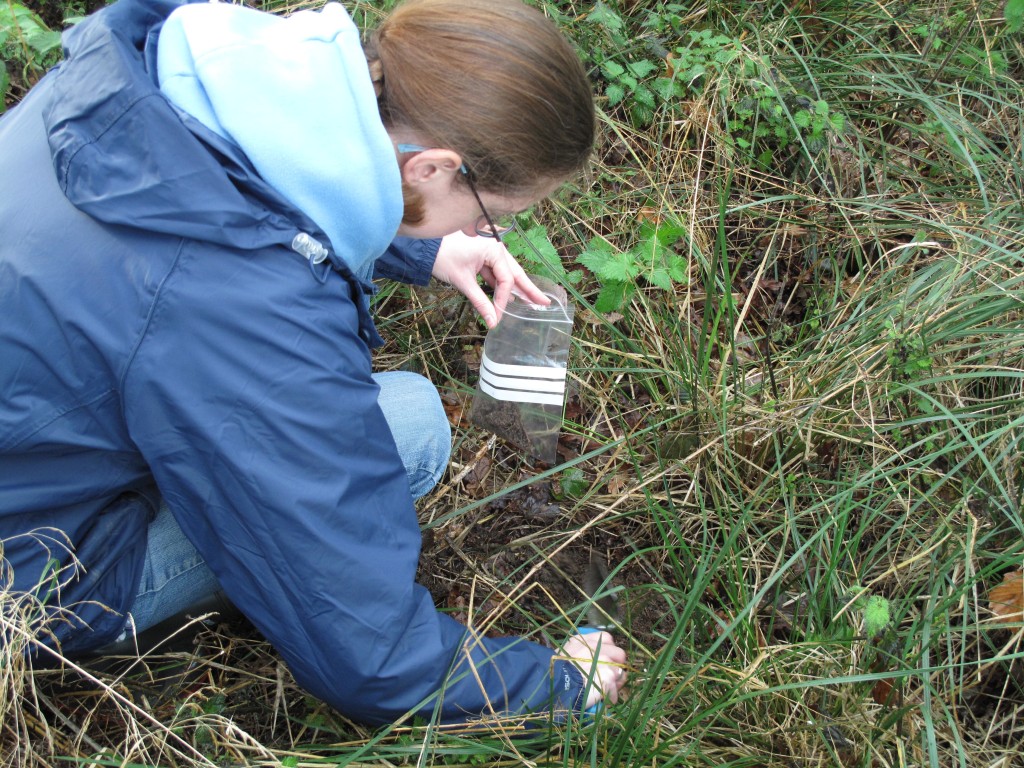‘And God blessed [mankind] and said to them, “Be fruitful and increase in number; fill the earth and subdue it. Rule over the fish in the sea and the birds in the sky and over every living creature that moves on the ground.” ’ The LORD God took the man and put him in the Garden of Eden to work it and take care of it.’ Genesis 1:28, 2:15 (NIV)
‘For the creation waits in eager expectation for the children of God to be revealed. For the creation was subjected to frustration, not by its own choice, but by the will of the one who subjected it, in hope that the creation itself will be liberated from its bondage to decay and brought into the freedom and glory of the children of God. Romans 8:19-21 (NIV)
Reflection
Although I was trained as an archaeologist, over the years I have slowly moved towards research that can more accurately be described as palaeoecology or palaeoenvironmental science, i.e. ecology and environmental science applied to the past. As with archaeology, one of the things that attracts me to environmental science is its multidisciplinarity. This multidisciplinarity primarily lies in the application of methods from other sciences, such as biology, physics, chemistry and information science, to the object of study: the relationships between animals, plants and the non-living world. Environmental studies often also have a strong ethical dimension because of their direct bearing on the flourishing of human and non-human life. Questions of biodiversity, conservation and ecosystem services often require careful consideration of economic and social issues, as well as environmental aspects.
In Genesis 1, God commanded the fish and birds to fill their respective habitats, a command which is repeated after the flood (Genesis 8: 15-17, 9: 1). The intricate ways in which animals, plants and the earth itself form ecosystems reflect the beauty and complexity of God’s creative plan. When God created human beings, he gave them a specific task: to ‘fill the earth and subdue it’. I believe that as scholars, we are fulfilling the creation mandate, in environmental science, for example, by finding the best means to manage habitats and regulate the distribution and effects of plants (e.g. agricultural ecology, forestry, invasive species’ ecology). In Genesis 2, Adam is given another pair of commands for his relationship with the Garden of Eden, which are cognate with the Hebrew for “listen to” and “serve” (Calvin DeWitt, see Further Resources). We may think of scholarship as a multifarious challenge of listening to, serving, managing and naming the incredible diversity of creatures that surrounds me.
However, our world is groaning under the effects of the fall. The ground is cursed because of mankind’s sin. The prophet Hosea describes how the wickedness of the children of Israel affected the land: ‘Therefore the land mourns, and all who dwell in it languish, and also the beasts of the field and the birds of the heavens, and even the fish of the sea are taken away’ (Hos. 4: 3; for similar passages, see Isaiah 24: 4-6 and Micah 6). All of creation is affected. Much environmental research tries to solve the mess we make of our environment: pollution, climate change, soil infertility.
But as Christians, we also know that one day the creation will be redeemed from its bondage to decay (Rom. 8: 19-22). And then, as the Psalmist poetically expresses, the sea will roar, the rivers will clap their hands, and the hills will sing for joy, together with the world and those who dwell in it (Ps. 98: 7-8). What a day will that be! But as we wait with eager expectation for that day to come, as Christian scholars we should strive to be the best stewards of God’s seas, rivers and hills we can be.
Questions
1. How does your scholarship contribute to the fulfilment of the creation mandate? The Bible describes the initial home of humanity as a garden, but in the new creation mankind’s home is a city. How does your scholarship contribute to ‘the glory and honour of the nations’, which will be brought into this city (Revelation 21:26)?
2. All of creation is subject to frustration (Romans 8:20). How can you contribute to the liberation of creation from its bondage to decay?
Prayer
Creator God, how majestic is your name in all the earth! You have made us rulers over the works of your hands. Help us to serve your creation with wisdom and faithfulness, to bring healing to what is broken. We long for the day when all of creation will shout for joy at your coming. May your creation be brought into the freedom and glory of the children of God. Amen.
Further Resources
Calvin DeWitt, ‘Biblical teachings on environmental stewardship and caring for creation,’ lecture at the Faraday Institute for Science and Religion in Cambridge, can be found via http://www.faraday.st-edmunds.cam.ac.uk/Multimedia.php.
Calvin DeWitt, Earth-wise, A biblical response to environmental issues (Grand Rapids: Faith Alive Christian Resources, 1994/2nd edition 2007).
Adapted from two blog posts, one by Eline van Asperen, the other by Richard Gunton, on the Faith in Scholarship-blog, posted 17 November 2014 and 26 September 2014, http://faithinscholarship.org.uk/environmental-sciences-creation-fall-redemption/ and http://faithinscholarship.org.uk/ecology-fill-subdue-earth-listen-serve-garden/
Image: Eline taking a soil sample, courtesy of Eline van Asperen
Eline N. van Asperen is a Leverhulme Early Career Fellow at Liverpool John Moores University, United Kingdom. She holds a PhD in archaeology, with a focus on ice age large mammals, but currently researches fossil fungi that grew on animal dung! Originally from the Netherlands, she and her British husband live in Bebington, a village south of Liverpool. Besides her academic work, she is involved in Christian postgraduate ministry through Faith-in-Scholarship (http://www.faithinscholarship.org.uk/) and Transforming the Mind (http://www.christianpostgrad.org.uk).


Leave a Reply